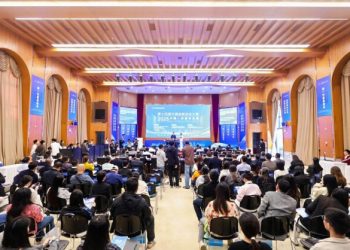On Nov. 5, the U.S. Supreme Court will hear one of the most consequential trade cases in decades. The justices will decide whether a president can rely on a Cold War–era emergency law, the International Emergency Economic Powers Act, to impose sweeping import duties on a vast share of what the United States buys from abroad.
At stake is more than the scope of presidential power. The case highlights a deeper question of accountability: Who should decide what Americans pay for imported goods – the president acting alone, unelected judges reading emergency laws broadly, or the elected representatives who must face voters when prices rise?
When tariffs end up in court, it’s usually because Congress has failed to act. Over the past few decades, lawmakers have ceded much of their trade authority to presidents eager to move quickly – and the courts have been left to clean up the mess. Each new lawsuit makes it seem as though judges are running the economy when, in fact, they’re being pulled into policy questions they’re neither trained nor elected to answer.
As an economist, not a lawyer, I view this as more than a constitutional curiosity. It’s about how the world’s largest economy makes decisions that ripple through global markets, factory floors and family budgets. A duty on steel may help a mill in Ohio while raising bridge-construction and car-buying costs everywhere else. A tariff on electronics might nudge assembly onshore yet squeeze hospital and school budgets that depend on those devices.
These are choices about distribution – who gains, who pays, and for how long – that demand analysis, transparency and, above all, democratic ownership.
How did the US get here?
Congress didn’t exactly lose its tariff power; it gave it away.
The Constitution assigns “Taxes, Duties, Imposts and Excises” to Congress, not the White House. Historically, Congress set tariff lines in law – consider the Smoot–Hawley Tariff Act of 1930. The pivot began with the Reciprocal Trade Agreement Act of 1934, which let presidents adjust rates within limits via executive agreements. In the 1960s and ’70s, Congress passed laws expanding the president’s authority over trade, granting new powers to restrict or adjust imports without a separate congressional vote if certain conditions are met.
In my view, two key incentives drove the drift: blame avoidance and gridlock. Tariffs are redistributive by design: They benefit some sectors and regions while imposing costs on others. Casting a vote that helps steelworkers in one state but raises prices for builders in another is politically risky. Delegating to the White House allowed lawmakers to sidestep the fallout when prices rise or when jobs shift.
And as polarization intensified, the bargaining that once produced workable compromises became increasingly complex. Broad emergency statutes and open-ended delegations became the path of least resistance – fast, unilateral and insulated from negotiation. Over time, exceptions became the norm, and courts were tasked with resolving the gray areas.
That’s a poor way to run economic policy.
Judges interpret statutes and precedent; they don’t run general equilibrium models, forecast inflation paths or map supply chain rerouting. Evidence in court is confined to a single case file. Remedies are blunt: They are either to uphold, strike down or send back. Tariff design, by contrast, is about calibration: how high, how long, which sectors, which exclusions, what off-ramps, what triggers for renewal or repeal.
When lawsuits substitute for legislation, countries drift into policy by injunction. Companies see rules whipsaw; projects are delayed or shelved; households experience price swings that feel arbitrary; trading partners retaliate against policies they see as improvisational.
A matter of accountability
Accountability sits at the center of the problem. Most judges aren’t elected; lawmakers are. Lifetime tenure protects judicial independence – good for rights, bad for setting taxes. No one can vote out a court when tariffs push up the price of a school Chromebook or a contractor’s rebar.
Members of Congress, by contrast, must explain themselves. They can hold hearings, commission impact analyses, hear from unions and small businesses, and then defend the trade-offs. If tariffs save jobs in one town but raise prices nationwide, voters know exactly whom to reward or punish. That democratic link is why the Constitution places “Duties and Imposts” in the hands of Congress.
None of this means paralysis when it comes to trade policy. The United States has done this before – via trade-promotion and fast-track authorities that set clear goals and required renewal votes – while the EU and Japan have paired swift action with built-in legislative oversight.
Congress can be nimble without being reckless. Best practices for tariffs include setting clear targets using accessible language, having independent analysts conduct reviews before and after a tariff is put in place, and having diplomacy baked into a broader trade-security strategy that reports retaliation risks.
The challenge facing the court
In my view, the Supreme Court’s role here is both modest and vital: to enforce the statute and the constitutional line.
If a general emergency law doesn’t clearly authorize sweeping, long-duration tariffs, it’s not activism to say so plainly. It’s boundary-keeping that returns the pen to Congress. What I think the court should avoid is appearing to write the tariff code from the bench. That swaps democratic ownership for judicial improvisation and guarantees more litigation as a strategy.
In theory, a more public, accountable system would also free everyone to focus on what they do best. That means economists measuring who gains and who pays, lawmakers weighing trade-offs and answering to voters, and courts enforcing the rules – not designing the policy.
![]()
Bedassa Tadesse does not work for, consult, own shares in or receive funding from any company or organization that would benefit from this article, and has disclosed no relevant affiliations beyond their academic appointment.















